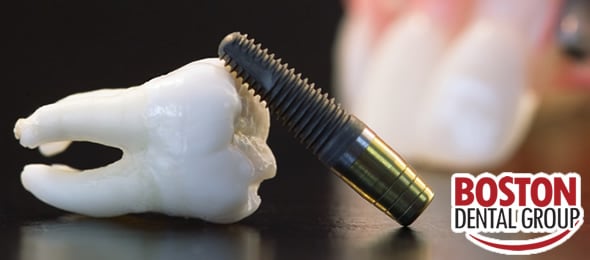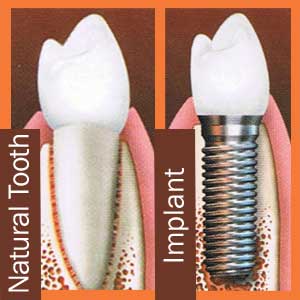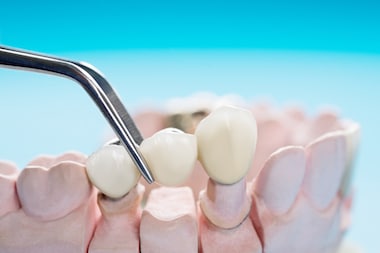
Losing a permanent tooth can be a difficult experience, impacting not only your smile but also your confidence and oral health. Fortunately, there are effective solutions for single tooth replacement. Let’s take a look at some of the best options for single tooth replacement, and when each of them might be suitable for you.
Best Options for Single Tooth Replacement
Maybe you lost a tooth during a sporting incident or another accident, or maybe the tooth was lost to decay. Whatever the reason, there are options available to replace your tooth effectively.
Single Unit Tooth Implants
 Dental implants are the most popular and effective option for single tooth replacement. Dental implants work very similarly to your real teeth, and they provide exceptional strength and reliability.
Dental implants are the most popular and effective option for single tooth replacement. Dental implants work very similarly to your real teeth, and they provide exceptional strength and reliability.
Dental implants are surgically placed into the jawbone using a titanium post. A crown is then attached to the post, which mimics the structure of a natural tooth. This process involves a few different steps. First, your dentist or orthodontist will place the titanium post, which requires surgery. You’ll need to heal from this process before the crown can be placed. The jawbone will heal around the post in a process called osseointegration. This is part of what makes the implant so strong.
After the post is placed, your dentist will customize a new tooth to cover the post.This tooth, called a crown, will look and function like your original tooth. It will be customized to blend in with your other teeth.
Tooth implants are a sturdy and long-lasting solution for single tooth replacement. However, this process also takes longer, and not everyone is comfortable with this type of oral surgery. It also requires a healthy jawbone or, if the jawbone isn’t healthy, a bone graft.
Interested in dental implants?
Get your questions answered with the free guide!
Pros of a Tooth Implant
- Natural Look and Feel: Implants closely resemble natural teeth in appearance, functionality, and feel, providing a seamless smile.
- Preservation of Adjacent Teeth: Unlike bridges, implants do not require the alteration of adjacent teeth, preserving their natural structure.
- Longevity: With proper care, dental implants can last a lifetime, making them a durable and reliable solution for tooth replacement.
- Preserves Jawbone: Since the dental implant is linked to the jawbone similar to a tooth root, the jawbone will continue to function normally, and won’t deteriorate.
Cons of a Tooth Implant
- Surgical Procedure: The process of getting a dental implant involves oral surgery, which may require several months for healing and osseointegration.
- Cost: Dental implants tend to be more expensive upfront compared to other options, although their longevity can make them a cost-effective choice in the long run.
- Requires Strong Jawbone: Sufficient bone density is necessary for successful implantation, and in some cases, bone grafting may be required to augment the jawbone.
Additional Options
A dental implant is the best option for single tooth replacement. However, there are other options that may also work for you. These options are less sturdy and not as long-lasting, but they can often be more affordable. One of these options is a single-tooth bridge, also known as a partial denture. This is a dental restoration that fills the gap left by a missing tooth. It consists of an artificial tooth, also called a pontic, held in place by the adjacent teeth, effectively bridging the space.
Consult with your dentist to learn more about dental implants or, if you prefer, a single-tooth bridge or partial denture. If you’re interested in tooth replacement in Las Vegas, BDG can help. Make an appointment at an office near you today to learn more about safe and effective Las Vegas tooth replacement.

